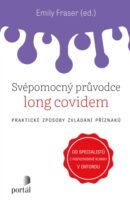Anthony A. Bibus III
Medailon autorů:
Anthony A. Bibus III, PhD, LISW is Professor Emeritus at Augsburg College in Minneapolis, Minnesota, USA. His social work experience includes juvenile probation, child protection, family-based services, licensing and supervision. His publications have covered topics related to child welfare, welfare reform, international social work, cultural competence, citizenship social work, involuntary clients, regulation and supervision.
Anotace:
This article introduces readers to the application of three approaches from moral philosophy to ethical decision-making in social work. The Statement of Ethical Principles of the International Federation of Social Workers points out that social workers often encounter moral quandaries, some due to our function as both helpers and controllers. In addressing these ethical dilemmas, we are obliged to “take responsibility for making ethically informed decisions” and “be prepared to state the reasons” (IFSW, 2012: 5.10 and 5.11). In the United States (US), literature on ethics has relied primarily on two approaches from moral philosophy: deontology (based on principles, rules, and duties) and teleology (based on ultimate ends and consequences, e.g., utilitarian calculations). Social workers internationally have added the perspective of virtue ethics. Thus, discourse among social workers internationally is vital for a balanced strategy to address ethical dilemmas.
With a child welfare example, the article demonstrates how these three theoretical perspectives help in determining an ethical course of action. While principle/duty-based and utilitarian approaches keenly focus on an act’s morality, virtue ethics first focuses on the actor’s motivation and characteristics. The article concludes with suggestions on how virtue ethics can inform social workers’ professional development and personal growth.
Klíčová slova:
péče o děti, etické rozhodování, etika, etika, sociální práce, etika ctnosti
s. 33–50






